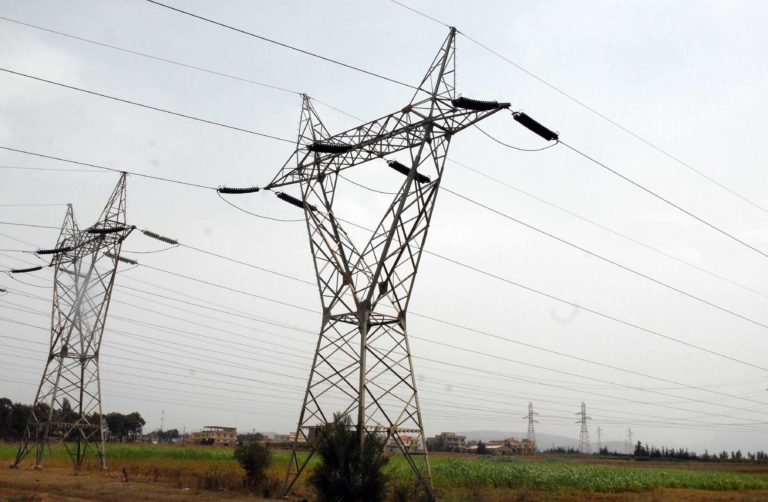The Central Bank of Egypt has been making headlines recently, not least of which due to the dire state of the country’s foreign reserves and the looming currency devaluation.
It’s the news of a possible change in the top post of CBE governor that has been stealing the spotlight, as it is repeatedly leaked, confirmed, then swiftly denied.
But the most critical development within the Central Bank will be the impending amendments to the law governing its activity, which experts are concerned will infringe on its independence.
State-run Al-Ahram reported early in December that President Mohamed Morsy plans to issue a decree to amend the statutes that govern the bank and its officials, giving himself the authority to appoint members of its governing board.
The modifications reduce the number of board members and give the president the right to nominate the next CBE governor without the usual recommendations from the prime minister.
While the decree has not yet officially passed, confirmations and denials of changes at the CBE’s top level have highlighted the tenuous decision-making process plaguing the political sphere and already fragile economy.
Late Saturday, state TV reported that current Governor Farouk al-Oqda resigned and will be replaced by Hesham Ramez, former deputy governor and current vice chairman of Commercial International Bank. Shortly after, a Cabinet statement refuted the news, and until Sunday afternoon, Oqda was still in office as rumors abounded.
It’s no secret that Oqda has wanted to retire for months but has been prompted to remain in his key post amid Egypt’s unrelenting economic turbulence.
It was recently reported that he might retire by year’s end, and had already nominated potential successors, including Ramez, Federation of Egyptian Banks head and National Bank of Egypt chairperson Tarek Amer and Banque Misr head Mohamed Barakat.
A government official told Egypt Independent on condition of anonymity Sunday that "a presidential decree to appoint Ramez is expected to be issued as soon as the referendum results are finalized.”
Egyptians voted in phase two of the referendum Saturday, and initial results of the two rounds point to a 64 percent approval of the draft constitution.
"According to the new constitution, a senior government official cannot be in office for more than two terms. Oqda … has occupied this post for three consecutive terms," the official said.
Meanwhile, the decree announced earlier this month will set out to amend Central Bank Statute 64/2004, which specifies the membership of the bank’s governing board, allowing Morsy to appoint more of the members who, under the current law, the CBE governor is largely responsible for appointing. The new text makes no mention of who will choose the two deputy governors.
The amendments, already approved by the Cabinet, were first issued by the then-ruling Supreme Council of the Armed Forces last year, after being discussed in the now-dissolved Parliament.
Faika el-Refaie, former deputy governor of the CBE, says that in 2011, the SCAF modified the bank’s internal regulations upon the request of the Central Bank itself, to eliminate any conflicts of interest that may currently distort the board’s membership. The amendments curb any possible conflicts of interest among the bank’s board members to guarantee their autonomy, in keeping with international standards.
“In 2003, ousted President [Hosni] Mubarak modified the CBE law and was criticized for limiting its independence. These [new] modifications are much-needed guidelines and were mainly demanded by the Central Bank itself to set things right,” Refaie says.
However, she adds, “If Morsy grants himself the sole authority to choose the governor, without the usual recommendations from the prime minister, this will not mean independence for the Central Bank.”
The amendments prohibit the existence of any conflict of interest with board members’ duties, sovereignty or the privacy of information they acquire as members of the CBE board.
“They should never head, be members, employees or counselors at any commercial bank or financial institution,” Mahmoud Abdel Aziz, former deputy governor and adviser to the current governor, explains.
Abdel Aziz says the amendments will make the CBE more independent by not requiring recommendations from the prime minister or the Cabinet, thus resolving a longstanding conflict between fiscal and monetary policies.
Clearly distinguishing between fiscal and monetary policies is an issue many countries battle, not just Egypt, he says. The government, which sets short-term fiscal policies, usually issues decisions that clash with the Central Bank’s more reserved monetary policies, which are generally longer term, protect the currency, and determine the size and rate of growth of the money supply, as well as set banking sector laws.
For this reason, it’s better for the Central Bank governor to be selected without the interference of the prime minister or Cabinet, according to Abdel Aziz.
The draft law will set out to amend Article 18 of the Central Bank statute, reducing the bank’s board members from 15 to nine.
According to the amended article, “The bank’s board shall consist of the governor and two assistant governors, the head of the financial supervisory authority, a representative of the finance minister to be nominated by the minister, and four members with experience in financial, monetary, banking, legal or economic issues, to be appointed by the president for a four-year renewable term.”
Changes to Article 19 stipulate that the governor and board members are Egyptian and of Egyptian parents, with experience in banking and economics; and that they are “free to practice their political and civil rights, have an upright reputation and no prior felony or criminal convictions … with no interests to interfere with their duties or impartiality.”
Due to their current posts, some of the bank’s board members that may be affected by the changes include both Amer and Barakat, as well as chairman of Banque Misr Abdel Salam al-Anwar, former chairman of HSBC Egypt Mona Zulfacar, legal expert and board member of EFG-Hermes Alaa Saba and economic expert Ziad Bahaa Eddin, who is also the former head of the Egyptian Financial Supervisory Authority.
Observers say Oqda cannot leave his post now, given his key role in negotiations with the International Monetary Fund for a US$4.8 billion loan, the approval of which was delayed from 19 December to January after a set of new taxes were passed and then swiftly suspended amid a polarized political climate.
The CBE has largely maintained its independence throughout Egypt’s transitional period, during which the bank has carefully managed the value of the country’s currency, which has slowly and incrementally lost value without any dramatic drops.
While some have criticized the decision to use foreign reserves to prop up the Egyptian pound, others have lauded Oqda for his management of the tumultuous process.
Foreign reserves have fallen to $15.036 billion after losing $449 million in November. On Sunday, the Egyptian pound was trading at LE6.168 to one US dollar.
Oqda became governor of the Central Bank in December 2003, succeeding Mahmoud Abul Eyoun. He was reappointed to a third four-year term last November by the SCAF.




